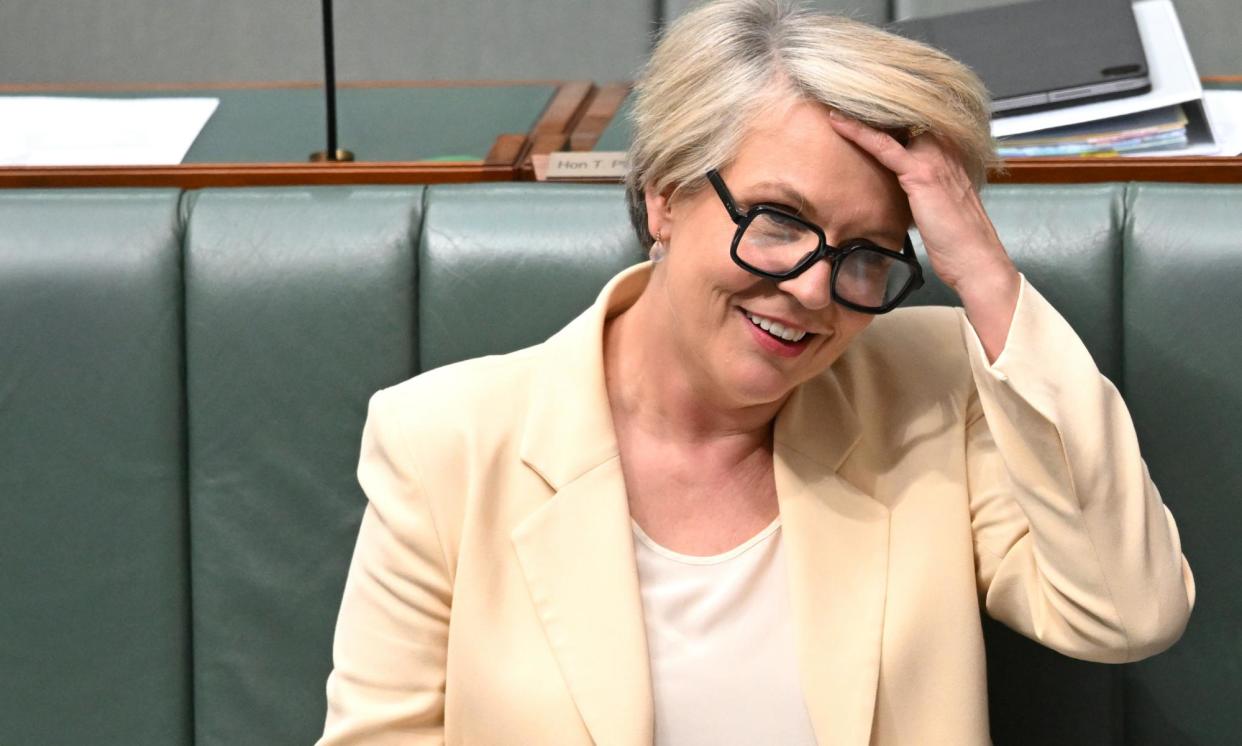Labor’s stalled environmental agenda under pressure from left and right

Anthony Albanese is rejecting demands from the Greens and some Senate crossbenchers to subject development projects to climate-impact assessments and remove forestry’s effective exemption from environmental protection law, as the government negotiates on stalled legislation with parties to the left and right.
The environment minister, Tanya Plibersek, is in talks with the Greens, crossbenchers and the Coalition over legislation to establish an environment protection authority.
But after she appeared to hint on Wednesday that the government could agree to include climate impact among considerations before projects are approved, the prime minister has made it clear from the sidelines that this is not on the table.
Although the Greens remain hopeful of further compromise, Albanese has indicated to various parties in the negotiations that he wants a deal struck with the Coalition. He appears prepared to wait, having prioritised other legislation such as changes to aged care.
On Thursday, the Greens’ environment spokesperson, Sarah Hanson-Young, accused Albanese of capitulating to the demands of the mining industry, especially in Western Australia where Labor is fighting to retain the swag of seats it won at the 2022 election.
“The prime minister has a choice to make,” Hanson-Young said. “Does he want his environment minister to protect the environment? Or does he want his environment minister to be a minister for the mining lobby?”
In remarks to the Minerals Council’s annual conference on Wednesday that appeared designed to pressure the Coalition to advance negotiations, Plibersek hinted she could add climate impact to considerations required under national environmental laws.
“We’re working with the whole range of senators – and all of the different perspectives they come from – to see who we can pass our package of laws with,” Plibersek said when Tania Constable, the Minerals Council chief executive, asked for reassurance that Plibersek would not contemplate adding either a climate consideration or trigger. “That’s how this works. That’s how democracy works.”
Asked if she would rule it out, Plibersek said the government’s focus was on using the safeguard mechanism to manage climate impacts. But then she added a caveat.
“I‘ve got to be clear, we are in intense negotiations right across the parliament,” she said. “I’m not going to pretend to you that there’s no discussion of climate considerations as part of this negotiation. I can’t pretend that.”
In his address to the same group soon after, the opposition leader, Peter Dutton, said the Coalition was negotiating in good faith.
“I don’t believe that the Greens and the government can arrive at a position that wouldn’t destroy the Labor party in Western Australia,” Dutton said. “And I don’t think the prime minister is going to take that risk is my political judgment.”
The shadow environment minister, Jonathon Duniam, suggested on Thursday that the prime minister and environment minister were at odds, pointing to comments Albanese made to the West Australian newspaper before a cabinet meeting there last week. In an interview, Albanese said he was prepared to strip decision-making powers from the proposed EPA so it was a compliance-only body – a concession seen as designed to win Coalition support.
“The prime minister caved to Coalition demands by offering to pare back the EPA, while the environment minister is ready to punish the mining sector and the wider economy with a climate trigger,” Duniam told Guardian Australia.
“The gulf between these views is enormous and a symptom of the dangerous ideological tilt that leftwing ministers are taking Australia in.”
Earlier this week, the Greens and crossbenchers David Pocock and Lidia Thorpe offered to work with the government to improve the bills before the Senate, in return for their support.
Related: Labor claims Aukus nuclear waste dumping issue just a Greens scare campaign
In addition to amendments that would strengthen the EPA’s independence, the group is seeking action on native forestry by ending the exemption from Australia’s environment laws for logging covered by a regional forest agreement (RFA). Logging covered by these agreements does not have to be assessed under federal laws for its impact on protected matters, including threatened species such as the koala and greater glider.
The senators are also seeking the inclusion of “climate considerations” in the environmental assessment process. This would effectively add climate to the decision-making criteria under the Environment Protection and Biodiversity Conservation Act, alongside existing considerations such as the effects of a development on listed species, and its social and economic impacts.
This is a different proposal to a climate trigger, which would have added climate to Australia’s list of nine protected matters, which include listed species, world heritage areas, internationally significant wetlands and water resources affected by large coal and unconventional gas developments (the water trigger).
The final key ask from the group is for greater inclusion of First Nations knowledge and expertise in environmental governance and decision-making.


